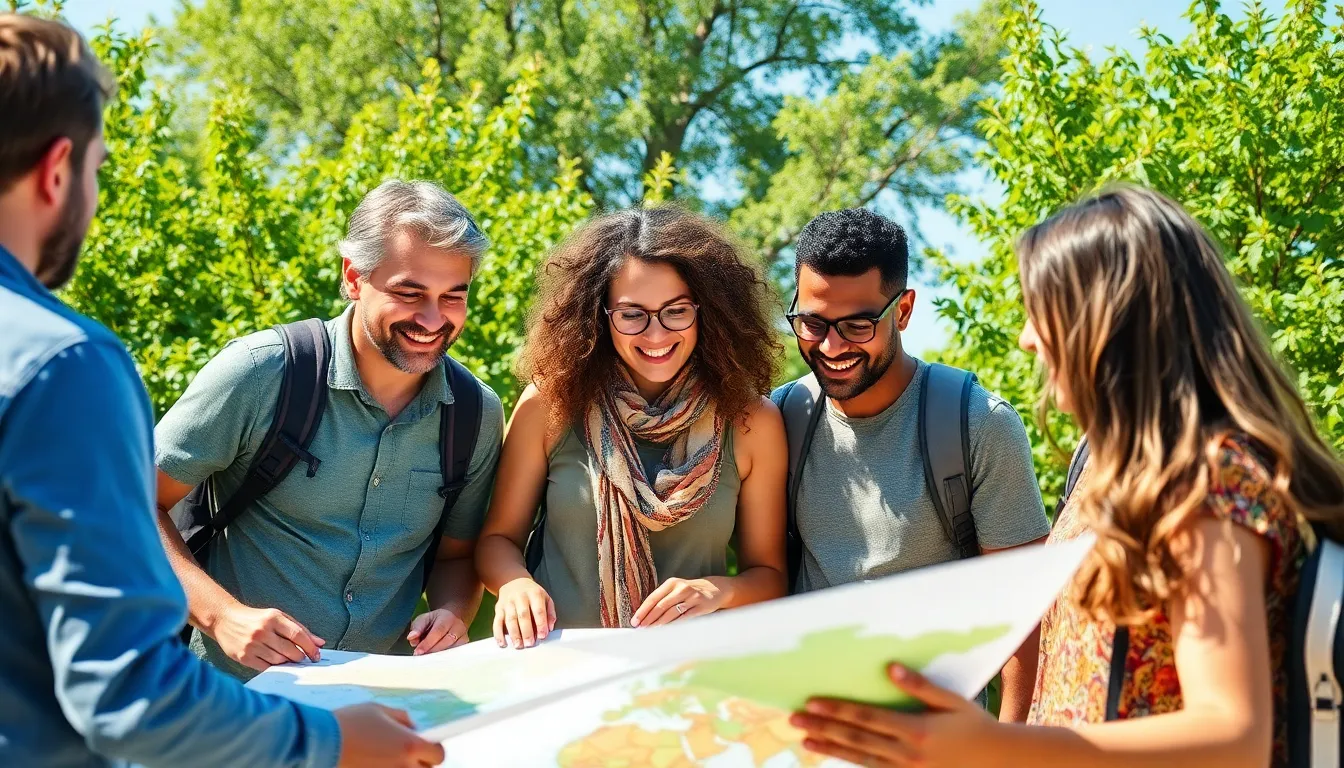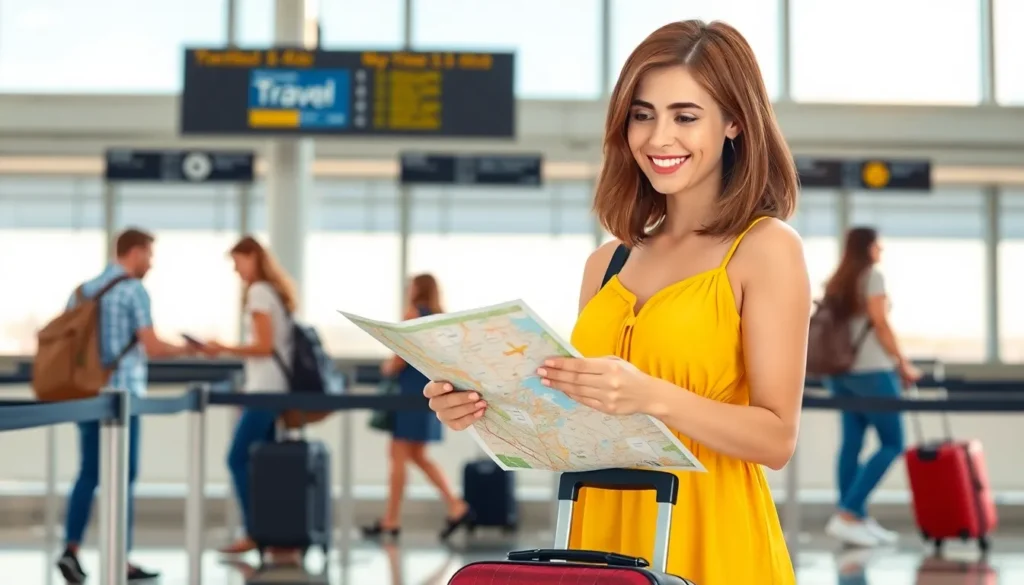Traveling is one of life’s greatest joys, but it can also feel like a game of dodgeball with unexpected twists and turns. From missing luggage to surprise layovers, navigating the world can be a bit like herding cats—chaotic and unpredictable. But fear not! With a sprinkle of preparation and a dash of common sense, anyone can turn a potential travel disaster into a smooth journey.
Have A Safe Travel
Safe travel plays a crucial role in enhancing the overall experience for travelers. Prioritizing safety ensures smooth journeys and protects travelers from unforeseen situations.
Understanding Travel Risks
Travelers encounter various risks, including health issues, theft, and accidents. Understanding these risks prepares individuals for potential hazards they might face on their journey. Low vaccination rates in some regions increase the risk of illness during travel. Theft is another concern, especially in crowded areas or tourist hotspots. Accidents can also lead to serious injuries. Awareness of these factors helps travelers stay alert and informed.
Benefits Of Being Prepared
Preparation significantly reduces stress during travel. Packing essential items, such as medication and travel insurance, mitigates potential risks. Having a reliable itinerary keeps travelers organized and minimizes confusion. Familiarizing oneself with local customs can prevent misunderstandings. Additionally, maintaining an emergency contact list enhances safety. Prepared travelers often enjoy their trips more, focusing on experiences rather than concerns.
Pre-Travel Safety Tips

Travelers can enhance safety by preparing adequately before their journey. Focusing on vital steps fosters a smooth and enjoyable experience.
Research Your Destination
Prioritize understanding local customs, laws, and cultural norms. Travelers should look into current safety conditions and risks at their destination. Reviewing travel advisories from authoritative sources, such as the U.S. Department of State, offers critical updates. Familiarity with your environment minimizes surprises and enhances comfort. Access to local emergency numbers and resources proves beneficial in case of unforeseen circumstances. Knowing nearby hospitals and the location of your embassy or consulate ensures prompt assistance if needed. Engaging with travel forums or guides provides valuable insights from fellow travelers.
Health Precautions
Maintain health by staying updated on required vaccinations and medical advisories. Checking the Centers for Disease Control and Prevention (CDC) provides essential health guidelines for specific regions. Travelers need to pack necessary medications, including a first-aid kit with essential supplies. It’s wise to carry health insurance information that outlines coverage details abroad. Researching local healthcare facilities prepares travelers for potential medical situations. Drinking bottled or treated water safeguards against waterborne illnesses, especially in areas with known concerns. Staying informed about prevalent diseases in your destination helps travelers take appropriate precautions.
Packing Essentials For Safety
Packing for a safe journey ensures travelers are ready for unexpected situations. Essentials include safety gear and important documents to streamline any travel experience.
Must-Have Safety Gear
First aid kits offer basic medical supplies for minor injuries. Portable phone chargers keep devices powered for communication. A whistle proves useful for signaling help in emergencies. Emergency reflective vests enhance visibility during roadside incidents. Travel locks secure luggage against theft, providing peace of mind. Each item serves a specific purpose, contributing to a safer journey.
Emergency Contacts And Documents
Emergency contact lists should include phone numbers for local emergency services and family members. Copies of passports, IDs, and travel insurance documents protect against loss or theft. Local embassy contact information is crucial for international travelers facing issues. A printed itinerary streamlines navigation and maintains organization. Medical information, including allergies or chronic conditions, allows for proper care in emergencies. Maintaining these documents is key for a seamless travel experience.
Staying Safe During Your Trip
Staying vigilant during travel ensures a more enjoyable experience. Awareness of surroundings and situations is key to safety.
Navigating New Environments
Adjust to new environments by staying observant. Research the area ahead of time to identify safe routes, public transport, and local attractions. Use maps or navigation apps for real-time guidance. Familiarize oneself with transportation options and street layouts. Explore neighborhoods during daylight hours to enhance security. Interacting with locals can provide valuable insights into safe practices and hidden dangers. Utilize hotel staff for information about safe areas and current events. Understanding local regulations also minimizes risks.
Trusting Your Instincts
Be proactive about personal safety by trusting instincts. If a situation feels uncomfortable, respond accordingly. Avoid isolated areas and reconsider interactions with strangers. Recognizing warning signs prevents potential problems. Staying alert deters unwelcome attention while exploring. Keeping belongings secure and close enhances personal security. If feeling threatened, look for nearby crowds or authorities. Many travelers report that intuition often alerts them to potential danger, making it a vital tool. Emphasizing self-awareness helps maintain safety throughout the journey.
Conclusion
Safe travel is essential for creating memorable experiences. By prioritizing preparation and awareness, travelers can navigate the unpredictability of journeys with confidence. Understanding local customs and health precautions can significantly enhance comfort and security.
Packing the right essentials and maintaining important contacts ensures readiness for unexpected situations. Staying vigilant and trusting instincts further contributes to a safer experience. Ultimately, a well-prepared traveler can focus on the adventure ahead, transforming potential challenges into opportunities for joy and discovery. Embracing these practices leads to a more fulfilling and enjoyable journey.

